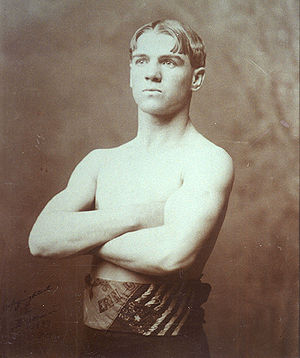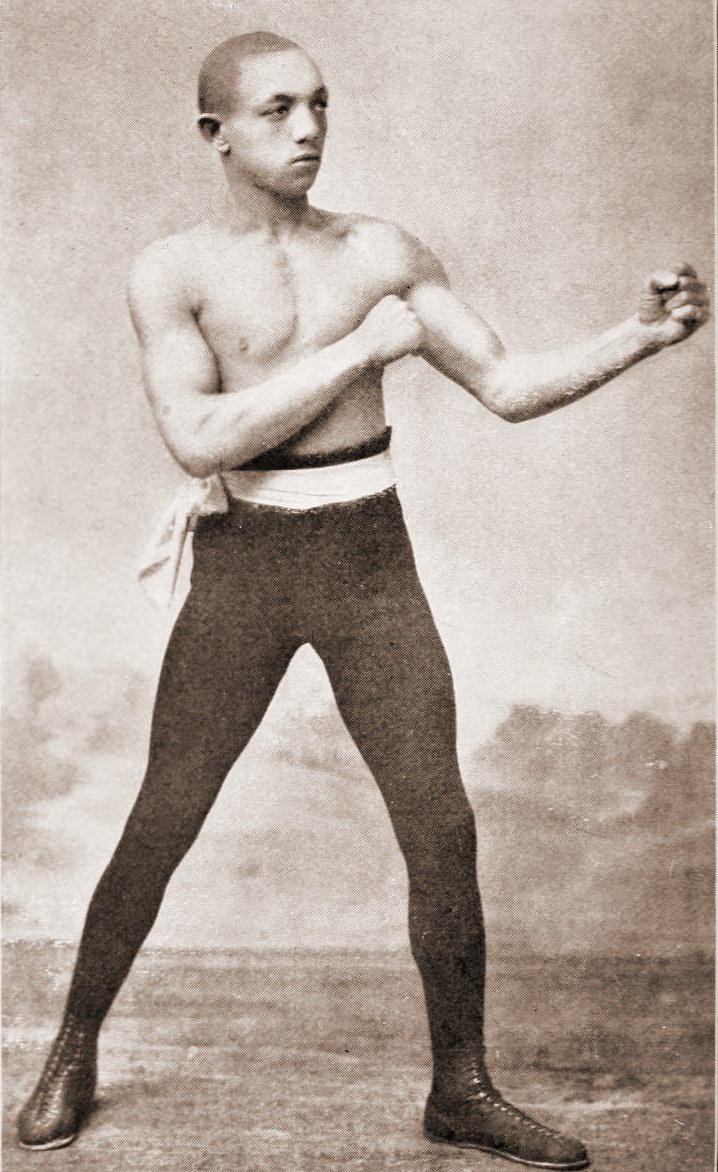“Phem heev” Terry neeg ntaus Dixon Title
Nyob rau lub ib hlis ntuj 5, 1900, 4 hnub ua ntej ib showdown nrog Bantamweight Boxing tau zus ib Terry McGovern, Featherweight ntiaj teb Boxing tau zus ib George Dixon tsim ib tug ntawv tshaj tawm rau ntsawj txias heev ntawm tag nrho nws los ntawm UFW nqaj qaum. Dixon tshaj tawm uas yeej los yog raug txiav ceg, nws yuav tsum retiring los ntawm lub nplhaib tom qab lub bout nrog McGovern.
The last thing a manager wants to hear before a big bout for his fighter is the fighter will retire after the bout. When a fighter starts to consider retirement, he or she often begins looking for a way out of fights instead of doing anything to win. You never want a fighter thinking about what’s next before the competition.

“Phem heev” Terry McGovern tias lawv muaj ib tug nws Championships
Qhov no, it was particularly troubling because Dixon was fighting “Phem heev” Terry McGovern, the Bantamweight World Champion. Unlike other smaller fighters, McGovern was known as a knockout artist. McGovern had also already beaten Dixon earlier in their careers.
The fight took place in front of a standing room only crowd at New York City’s Broadway Athletic Club. 30-year-old Dixon had been champion for 9 xyoo. 19-year-old Terry McGovern won the Bantamweight title after only two years in September 1899. McGovern was considered more powerful and heavily favored in the match.
As soon as the match began, Dixon began swinging a powerful left hook towards McGovern’s head. Txawm li cas los, McGovern stepped inside the punch and used both hands to unleash a wither body attack each time.
Dixon’s powerful lefts did knock McGovern back several times. “Phem heev” Terry would regain his posture and continue the withering body attack. Dixon had a surprised look on his face as his punches didn’t seem to faze McGovern.
Dixon never experienced a fighter, who could walk through his powerful hook and pound his body. McGovern’s work began to show. Dixon visibly tired and was struggling when the seventh round began.
McGovern immediately began opening up on the body. A shot over the heart staggered Dixon. McGovern followed up with a right cross over Dixon’s lowered left hand. Blood spurted from Dixon’s nose as Dixon collapsed into a corner. McGovern continued battering him although he helped Dixon to his feet twice after Dixon slipped on a wet spot in the ring.

George Dixon from the Public Domain
At the beginning of the Eighth Round, Dixon was bleeding and getting by on pure heart. McGovern knocked Dixon down eight times, five from body shots. With only a few seconds left, Dixon’s manager Tom O’Rourke threw in the sponge to forfeit the match to McGovern. “Phem heev” Terry was now both the Bantamweight and Featherweight World Boxing Champion not to mention $10,000 richer. The large sum was the prize money for the bout.
George Dixon did continue boxing until 1905 but he lost more of his fights than he won. He may have wanted to retire but needed the prize money. Destitute and ill, Dixon passed away at 37 years of age in New York City on January 6, 1908.
While George Dixon’s career was coming to an end, Terry McGovern, Tsis tau 20 xyoo, was just starting his career.
Koj yuav tawm ib saib los nug cov lus nug txog qhov no los yog tej tsev xa rau kuv Facebook phab.
Qhov chaw: Saint Paul Daily Globe, Lub ib hlis ntuj 6, 1900 ib tsab, p. 5 thiab Salt Lake City Herald, Lub ib hlis ntuj 10, 1900 ib tsab, p. 1
Pin It

